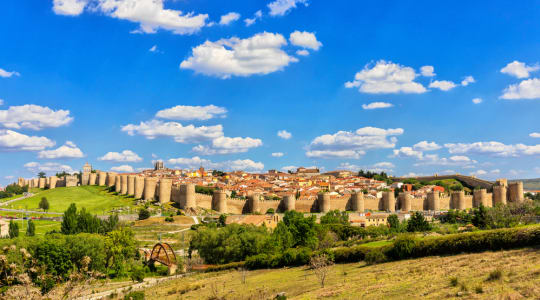Ávila is a Spanish city located in the autonomous community of Castilla y León. It is the capital of the province of Ávila and has a population of around 57,000 people. The city is famous for its well-preserved medieval walls, which surround the historic center and are one of the main tourist attractions.
The walls of Ávila were built in the 11th century and are among the best-preserved medieval walls in Europe. They are 2.5 kilometers long and have 88 towers and 9 gates. The walls were designated a UNESCO World Heritage site in 1985.
Apart from the walls, Ávila has many other historical and cultural landmarks, such as the Cathedral of Ávila, which was built in the 12th century and has a Gothic and Romanesque style. The Basilica of San Vicente is another important religious building, built in the 12th century in a Romanesque style.
Ávila is also the birthplace of Saint Teresa of Ávila, a mystic and writer who founded the Discalced Carmelites, and her birthplace has become a museum dedicated to her life and work.
The city is also known for its gastronomy, which includes dishes such as roast suckling pig and the local bean stew. Ávila is also famous for its sweets, especially its yemas, a type of egg yolk and sugar candy.
Explore Near Avila
Discover 3 attractions and 5 cities within 75km. Perfect for planning day trips, finding connecting flights, or discovering new destinations to explore during your visit.
Nearby Attractions & Places to Visit
3 destinations within 45.7km - 63.4km from your location



Nearby Cities Worth Exploring
5 destinations within 1.6km - 71.3km from your location
Cross-Border Adventures Near Avila
Discover cross-border adventures near Avila. Explore neighboring countries with similar attractions and extend your travel experience across borders.





